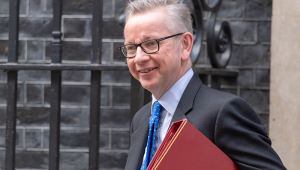Pilot areas in the previous two rounds have been trialling 100% retention of business rates and will continue to do so for the relevant year.
The Ministry of Housing, Communities and Local Government published a prospectus on new pilots on 24 July asking for applications from local authorities to test the scheme in the next financial year.
Local government secretary James Brokenshire said: “I want to encourage councils to work together, with the aim of sharing their business rates income, so they can make better decisions that benefit their wider areas.
“Continuing the pilot programme for the second time allows us to look at how the system will work from 2020.”
However, MHCLG said pilots for 2019-20 would not benefit from a ‘no detriment’ clause as has previously been the case.
The clause means those on the pilot scheme are refunded if their finances are negatively impacted as a result of the scheme.
“Applying a ‘no detriment’ clause to the pilots would not be reflective of the reformed business rates retention system that the government aims to introduce in 2020-21.” the MHCLG prospectus said.
Ten areas, including Berkshire and Derbyshire, were accepted as 100% retention pilots in December 2017 for the 2018/19 financial year. These areas can apply to remain pilots after March 2019, but only on the 75% retention.
London councils have also been piloting 100% business rate retention since April this year.
MHCLG said areas with devolution deals, like Greater Manchester and Liverpool, would continue on 100% retention in 2019-20.
It said it would continue to have separate discussions with London authorities about the ongoing London-wide pilot.
Prior to the announcement, David Phillips, associate director of the Institute for Fiscal Studies, told PF downgrading 100% pilots would be “politically tough” for the government.
Phillips noted that councils had been buoyed by the scheme and reducing their retention would leave a hole in their finances.
“These are sizable amounts of money. For Berkshire, it’s close to 60% of spending power, and going back to 75% would lose half of that gain potentially.”
Berkshire is one of the areas that has benefited most from the scheme, with a funding boost equivalent to £59 per person, compared to just £5 per person in Liverpool, according to IFS analysis.
Guy Ware, interim director of finance, performance and procurement, at London Councils, acknowledged that councils in the capital had seen a funding increase due to participating in the business rate retention pilot.
“Local authorities have been under notice in a sense that it is one-off funding that can’t be relied on,” he told PF.
“Whether they have been able to resist putting it into supporting their mainstream services given the pressures they are under is another matter.”
He said within London there had been a “live debate” as to how to use the extra funds and those who could would be using the money for “one-off projects and treat it as non-recurring funding”.
Applications to participate in the pilot need to be submitted by 18 September 2018. MHCLG said it expects successful applications to be announced alongside the publication of the provisional local government finance settlement.



















